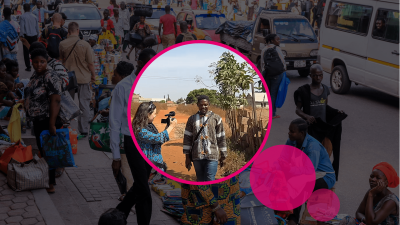The findings of the study are detailed in a report by Lloyd’s Register Foundation – Safe at Work? Global experiences of violence and harassment. It showed that men were more likely to report experiencing workplace violence and harassment than women in both Namibia (28% of men vs 20% of women) and South Africa (22% of men vs 11% of women). For context, the global average is 22% of men vs 20% of women.
Overall, this experience gap between men and women across the Southern Africa region is among the widest in the world at 11 percentage points and is a trend that is also seen across other lower- and middle-income regions such as Eastern Africa (8 percentage points) and Eastern Asia (9 percentage points). However, it is the reverse of many higher income regions, for instance in Europe and North America, where women are more likely than men to report experiencing violence and harassment at work.
The report also found that for people in Southern Africa who have experienced discrimination– for instance, based on their skin colour or religion - the risk of experiencing workplace violence and harassment increased significantly. Overall, a third of people (34%) who have experienced any form of discrimination in Southern Africa reported workplace harassment or violence. In contrast, less than one in ten (7%) respondents who have not experienced any form of discrimination reported workplace harassment or violence. The difference – 27 percentage points – is greater than the global average, which currently sits at 21 percentage points.
Worryingly, the data shows that just half (50%) of the people who experienced workplace violence or harassment in South Africa have told anyone about it, such as a friend, colleague, or their employer. The figure is similar in Namibia, at 56%.
Johan Botes, a Partner and Head of Employment Practice at global law firm Baker McKenzie in Johannesburg, commented: “Violence and harassment in the workplace remains an alarming problem in Southern Africa. As with other lower- and middle-income regions, the results show, perhaps unexpectedly, that male workers in our region are more likely than women to report being victims of violence and harassment, particularly physical and psychological. This shines a light on a topic not often broached in the region – the harassment of men, often in vulnerable positions due to low income or other power mismatch factors. While there is no single quick-fix, progressive employers could create greater awareness of this issue, as well of the rights of victims and legal remedies available.”
“At the same time, we must not lose focus on the problem of violence and harassment against women, incidents of which are likely to be under-reported. Whether the victims are male or female, men are most often the perpetrators, and employers must work to educate male employees on the role they must play in remedying this scourge.”
Dr Sarah Cumbers, Director of Evidence and Insight at Lloyd’s Register Foundation, added: “The findings from our World Risk Poll, and especially our country-level data, offer lawmakers and business leaders a valuable insight into some of the issues those in employment may face – making it easier to put preventative measures in place.
“The results show that sadly, workplace violence and harassment is commonplace, both globally and in Southern Africa specifically. The report also highlights a concerning correlation between experiences of discrimination and workplace violence or harassment – meaning up to a third of employees could be at risk in some cases. This shows the need for inclusive, zero-tolerance policies to protect people and create a safe work environment for all.”
To compile the global report, 125,000 people across 121 countries were polled about their experiences of workplace violence and harassment. All those interviewed were given a comprehensive definition of each of the three forms of ‘violence and harassment’ (physical, psychological, and sexual) that they were asked about.
View the South Africa and Namibia country snapshots.



